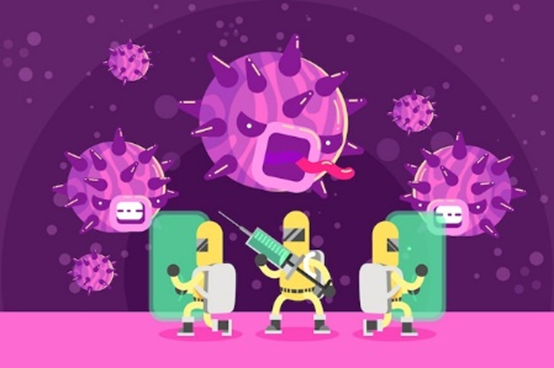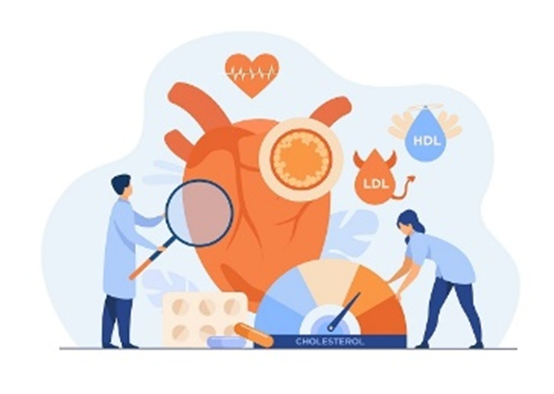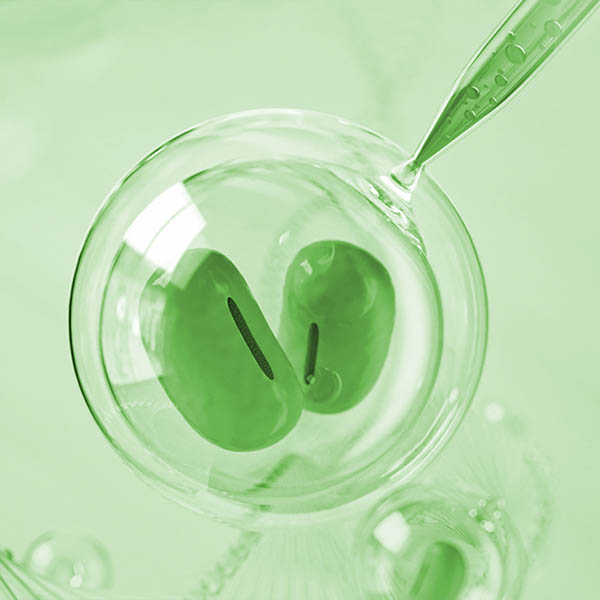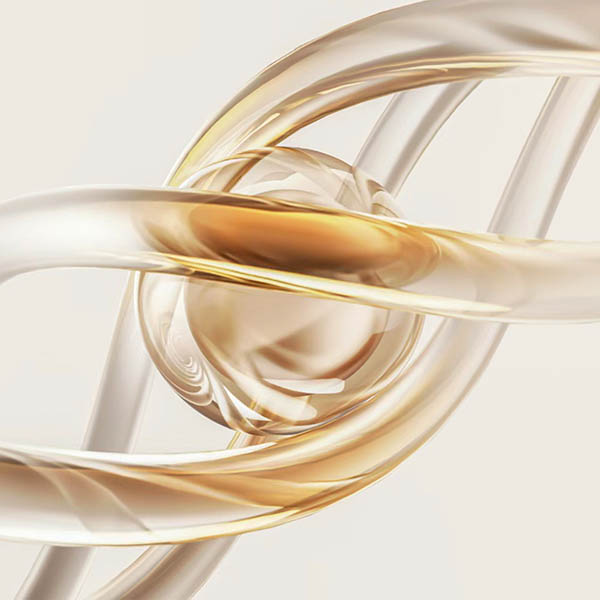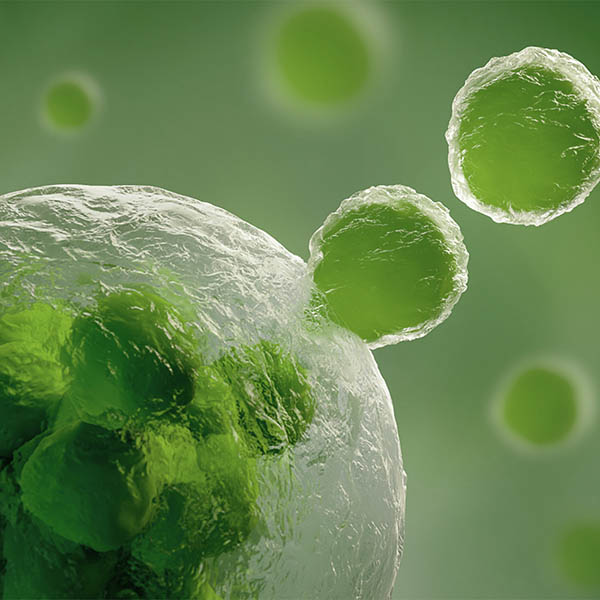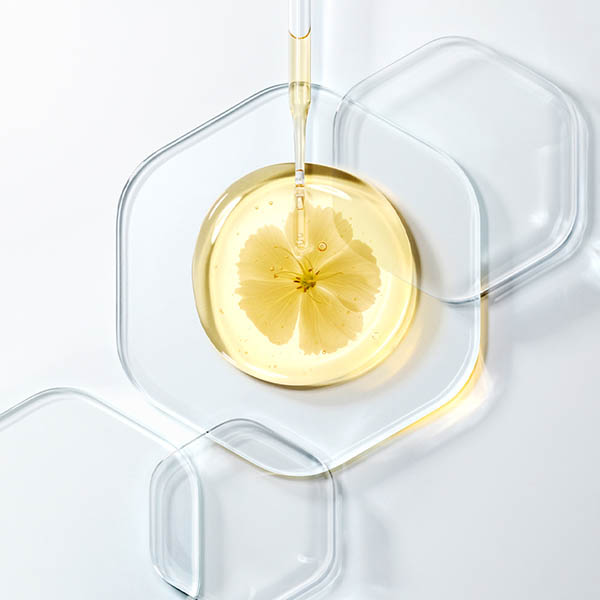The Latest Review: The Miraculous Spermidine – Direct Target to Anti-Aging & Successful Clinical Trials
Spermidine was discovered over 300 years ago in the semen of Prof Leeuwenhoek, father of microbiology. This distinct, scented discovery continues to flow through time. In 2016, the Nobel Prize (Physiology and Medicine) winning research on the study of autophagy, made spermidine famous for the discovery of its ability in activating cell autophagy. Only 2 years later, top journal “Science” published an article reviewing more than 130 scientific papers on progressing spermidine research, affirming its health values for living organisms. [1]
Prof Frank Madeo, who has been deeply engaged in research on autophagy and regulation of cells for over 20 years, is also optimistic about the anti-aging potential of spermidine – “Spermidine is a real anti-aging agent”.
Not long ago, Prof Madeo’s team publish a review in “Nature Aging”, comprehensively discussing hot topics such as evaluating the role of spermidine in inducing autophagy and aging, and analysing its clinical application in humans and whether or not it promotes tumour growth. [2]
1. Anti-Aging
n recent years, spermidine has been found to have preventive and even therapeutic effects in metabolism, inflammation and loss of immune homeostasis. For ageing, the largest risk factor for geriatric diseases, spermidine can regulate ageing markers in many ways that prolong the life of organisms.
No.1: Targeting the 9 markers of aging
There are 9 classic biological indicators of aging, including cellular senescence and telomere shortening etc. We can use these indicators as markers of anti-aging. Spermidine is effective in regulating most of these aging markers.
The following 4 indicators will be discussed:
Cellular Senescence
Cellular senescence promotes changes in cell cycle and molecular characteristics – senescent cells produce specific senescence-related secretory phenotypes that can accelerate overall aging.
Fortunately, in various in vitro cell model and mice animal model studies have shown effective reduction in the number of senescent cells with the use of spermidine. [3, 4] For example, spermidine significantly reduces levels of senescent marker p16 in female germline stem cells. [5]
Telomere Shortening
Telomeres are located at the ends of chromosomes and play a protective role during cell replication. However, as telomerase is expressed very limitedly in adults, telomeres in our bodies gradually shorten as we age, which accumulated cell replication.
When old mice were supplemented with spermidine for 6 months, telomere shortening was significantly reduced, to that of a younger mice. [6] This may be related to spermidine’s ability to promote autophagy and regulate the level of reactive oxygen species in the body. [7]
Mitochondrial Dysfunction
During the aging process, mitochondrial structural and functional disorders are not uncommon; mitochondrial abnormalities can accelerate the aging of the body by reducing cellular energy supply and chronic activation of pro-inflammatory responses.
As a result, scholars have been looking for ways to repair this important organelle for a long time. Spermidine can effectively improve mitochondrial function of senescent cells and model organisms (fruit flies, mice) [8-10], and restore the normal biosynthesis of mitochondrial proteins. [11]
Stem Cell Depletion
The potential of cell differentiation is gradually lost during the ageing process, resulting in the inability of elderly organisms to repair tissue damage and alleviate inflammatory responses in time. Spermidine seems to have the power to “dial back” the potential of cell differentiation.
By inducing autophagy, spermidine can restore the regenerative function of muscle stem cells and promote muscle production, making it a strong candidate for reversing sarcopenia. [12, 13]
No.2: Anti-aging & Prolong Longevity
When it comes to a potential age-protective substane or intervention, we always expect it prolong longevity (maximum life/healthy life). Spermidine restores the metabolic health of biological organism by activating autophagy and regulating transcription factors in the body’s signalling and energy pathways (AMPL and mTORC1) etc.
As a result, spermidine has shown to have significant life-prolonging effects from cells, invertebrates to mammals. For example, in mammalian mouse models, short-term or life-long intake of spermidine can both greatly extend the lifespan of mice to as high as 50%. [14] Does prolonging longevity of model animals mean that humans can also achieve the same anti-ageing effects from spermidine supplementation? The answer is essentially yes.
2. Life Prolonging Effects Proven In Human Clinical Trials
Many newly discovered anti-ageing agents are often halted at the clinical trial stage, spermidine, however was able to withstand the test.
Currently, human clinical trials on spermidine have found:
No.1: Improve Memory & Cognitive Function
A group of participants average aged 70, supplemented wheat germ extract with high spermidine content for 3-12 months; results showed an improvement in age-related cognitive impairment without any adverse effects. [15-18]
No.2 Anti-Inflammatory
Supplementing spermidine with natto for one consecutive year, subjects showed an improvement in abnormal activation of lymphocytes and significant reduction in chronic inflammation. [19]
No.3 Regulate Cardiovascular Function
Increasing spermidine content in the gut by combination use of arginine and Bifidobacterium yogurt, subjects were found to have an improved endothelial function and blood lipid status. [20, 21]
No.4 Improve Hair Loss
In a randomised, placebo, double-blinded, clinical trial, spermidine was shown to prolong the follicle growth phase and assist in the treatment of hair loss. [22]
In fact, long before official clinical trials, scientists have found that spermidine intake is closely associated with reduced cardiovascular disease [23], cancer [24], cognitive impairment risk [25], mortality [24], and increased life expectancy [26], in parts of Asia and Europe.
Moreover, spermidine content of healthy elderlies or centenarians are much higher than that of unhealthy control groups at the same age. [27]
3. Spermidine in the Body Decreases with Age
Spermidine can not only improve cognitive, cardiovascular function, but also prevent hair loss. However, spermidine content in the body gradually decreases with age, and becomes insufficient – it is necessary to supplement in time, to maintain health and longevity. Based on current clinical trials and test results, 5-15mg spermidine supplementation per day will effectively delay and even reverse the deterioration of age-related tissue and organ function.
To end with the following advice from Prof Frank Madeo – “spermidine supplementation is not recommended for people with tumours, cancers, or patients in recovery.”However, it is too early to conclude that spermidine may promote cancer development. In the contrary, spermidine has been shown to play a role in inhibiting tumour development in some studies. [28-30] More research on this substance, only discovered more than 300 years ago is still required.
References
[1] Madeo, F., Eisenberg, T., Pietrocola, F., & Kroemer, G. (2018). Spermidine in health and disease. Science (New York, N.Y.), 359(6374), eaan2788. https://doi.org/10.1126/science.aan2788
[2] Hofer, S., Simon, A., Bergmann, M., Eisenberg, T., Kroemer, G., & Madeo, F. (2022). Mechanisms of spermidine-induced autophagy and geroprotection. Nature Aging, 2(12), 1112-1129. doi: 10.1038/s43587-022-00322-9
[3] Baek, A., Hong, J., Song, K., Jang, A., Kim, D., Chin, S., & Park, S. (2020). Spermidine attenuates bleomycin-induced lung fibrosis by inducing autophagy and inhibiting endoplasmic reticulum stress (ERS)-induced cell death in mice. Experimental &Amp; Molecular Medicine, 52(12), 2034-2045. doi: 10.1038/s12276-020-00545-z
[4] Che, H., Ma, C., Li, H., Yu, F., Wei, Y., Chen, H., Wu, J., & Ren, Y. (2022). Rebalance of the Polyamine Metabolism Suppresses Oxidative Stress and Delays Senescence in Nucleus Pulposus Cells. Oxidative medicine and cellular longevity, 2022, 8033353. https://doi.org/10.1155/2022/8033353
[5] Yuan, X., Tian, G., Pei, X., Hu, X., & Wu, J. (2021). Spermidine induces cytoprotective autophagy of female germline stem cells in vitro and ameliorates aging caused by oxidative stress through upregulated sequestosome-1/p62 expression. Cell &Amp; Bioscience, 11(1). doi: 10.1186/s13578-021-00614-4
[6] Wirth, A., Wolf, B., Huang, C., Glage, S., Hofer, S., & Bankstahl, M. et al. (2021). Novel aspects of age-protection by spermidine supplementation are associated with preserved telomere length. Geroscience, 43(2), 673-690. doi: 10.1007/s11357-020-00310-0
[7] Scherz-Shouval, R., & Elazar, Z. (2011). Regulation of autophagy by ROS: physiology and pathology. Trends In Biochemical Sciences, 36(1), 30-38. doi: 10.1016/j.tibs.2010.07.007
[8] Jing, Y., Yan, J., Wang, Q., Chen, H., Ma, X., Yin, J., & Gao, L. (2018). Spermidine ameliorates the neuronal aging by improving the mitochondrial function in vitro. Experimental Gerontology, 108, 77-86. doi: 10.1016/j.exger.2018.04.005
[9] Eisenberg, T., Abdellatif, M., Schroeder, S., Primessnig, U., Stekovic, S., & Pendl, T. et al. (2016). Cardioprotection and lifespan extension by the natural polyamine spermidine. Nature Medicine, 22(12), 1428-1438. doi: 10.1038/nm.4222
[10] Qi, Y., Qiu, Q., Gu, X., Tian, Y., & Zhang, Y. (2016). ATM mediates spermidine-induced mitophagy via PINK1 and Parkin regulation in human fibroblasts. Scientific Reports, 6(1). doi: 10.1038/srep24700
[11] Puleston, D., Buck, M., Klein Geltink, R., Kyle, R., Caputa, G., & O’Sullivan, D. et al. (2019). Polyamines and eIF5A Hypusination Modulate Mitochondrial Respiration and Macrophage Activation. Cell Metabolism, 30(2), 352-363.e8. doi: 10.1016/j.cmet.2019.05.003
[12] García-Prat, L., Martínez-Vicente, M., Perdiguero, E., Ortet, L., Rodríguez-Ubreva, J., & Rebollo, E. et al. (2016). Autophagy maintains stemness by preventing senescence. Nature, 529(7584), 37-42. doi: 10.1038/nature16187
[13] Balnis, J., Drake, L. A., Singer, D. V., Vincent, C. E., Korponay, T. C., D’Armiento, J., Lee, C. G., Elias, J. A., Singer, H. A., & Jaitovich, A. (2022). Deaccelerated Myogenesis and Autophagy in Genetically Induced Pulmonary Emphysema. American journal of respiratory cell and molecular biology, 66(6), 623–637. https://doi.org/10.1165/rcmb.2021-0351OC
[14] Ao, Y., Zhang, J., Liu, Z., Qian, M., Li, Y., Wu, Z., Sun, P., Wu, J., Bei, W., Wen, J., Wu, X., Li, F., Zhou, Z., Zhu, W. G., Liu, B., & Wang, Z. (2019). Lamin A buffers CK2 kinase activity to modulate aging in a progeria mouse model. Science advances, 5(3), eaav5078. https://doi.org/10.1126/sciadv.aav5078
[15] Janssens, G., & Houtkooper, R. (2020). Identification of longevity compounds with minimized probabilities of side effects. Biogerontology, 21(6), 709-719. doi: 10.1007/s10522-020-09887-7
[16] Wirth, M., Benson, G., Schwarz, C., Köbe, T., Grittner, U., & Schmitz, D. et al. (2018). The effect of spermidine on memory performance in older adults at risk for dementia: A randomized controlled trial. Cortex, 109, 181-188. doi: 10.1016/j.cortex.2018.09.014
[17] Wirth, M., Schwarz, C., Benson, G., Horn, N., Buchert, R., & Lange, C. et al. (2019). Effects of spermidine supplementation on cognition and biomarkers in older adults with subjective cognitive decline (SmartAge)—study protocol for a randomized controlled trial. Alzheimer’s Research &Amp; Therapy, 11(1). doi: 10.1186/s13195-019-0484-1
[18] Pekar, T., Bruckner, K., Pauschenwein-Frantsich, S., Gschaider, A., Oppliger, M., & Willesberger, J. et al. (2020). The positive effect of spermidine in older adults suffering from dementia. Wiener Klinische Wochenschrift, 133(9-10), 484-491. doi: 10.1007/s00508-020-01758-y
[19] Soda, K., Uemura, T., Sanayama, H., Igarashi, K., & Fukui, T. (2021). Polyamine-Rich Diet Elevates Blood Spermine Levels and Inhibits Pro-Inflammatory Status: An Interventional Study. Medical sciences (Basel, Switzerland), 9(2), 22. https://doi.org/10.3390/medsci9020022
[20] Matsumoto, M., & Benno, Y. (2004). Consumption of Bifidobacterium lactis LKM512 yogurt reduces gut mutagenicity by increasing gut polyamine contents in healthy adult subjects. Mutation Research/Fundamental And Molecular Mechanisms Of Mutagenesis, 568(2), 147-153. doi: 10.1016/j.mrfmmm.2004.07.016
[21] Matsumoto, M., Kitada, Y., & Naito, Y. (2019). Endothelial Function is improved by Inducing Microbial Polyamine Production in the Gut: A Randomized Placebo-Controlled Trial. Nutrients, 11(5), 1188. doi: 10.3390/nu11051188
[22] Rinaldi, F., Marzani, B., Pinto, D., & Ramot, Y. (2017). A spermidine-based nutritional supplement prolongs the anagen phase of hair follicles in humans: a randomized, placebo-controlled, double-blind study. Dermatology Practical &Amp; Conceptual, 7(4), 17-21. doi: 10.5826/dpc.0704a05
[23] Eisenberg, T., Abdellatif, M., Schroeder, S., Primessnig, U., Stekovic, S., & Pendl, T. et al. (2016). Cardioprotection and lifespan extension by the natural polyamine spermidine. Nature Medicine, 22(12), 1428-1438. doi: 10.1038/nm.4222
[24] Kiechl, S., Pechlaner, R., Willeit, P., Notdurfter, M., Paulweber, B., & Willeit, K. et al. (2018). Higher spermidine intake is linked to lower mortality: a prospective population-based study. The American Journal Of Clinical Nutrition, 108(2), 371-380. doi: 10.1093/ajcn/nqy102
[25] Schroeder, S., Hofer, S. J., Zimmermann, A., Pechlaner, R., Dammbrueck, C., Pendl, T., Marcello, G. M., Pogatschnigg, V., Bergmann, M., Müller, M., Gschiel, V., Ristic, S., Tadic, J., Iwata, K., Richter, G., Farzi, A., Üçal, M., Schäfer, U., Poglitsch, M., Royer, P., … Madeo, F. (2021). Dietary spermidine improves cognitive function. Cell reports, 35(2), 108985. https://doi.org/10.1016/j.celrep.2021.108985
[26] Binh, P., Soda, K., Maruyama, C., & Kawakami, M. (2010). Relationship between food polyamines and gross domestic product in association with longevity in Asian countries. Health, 02(12), 1390-1396. doi: 10.4236/health.2010.212206
[27] Spermidine and Spermine Are Enriched in Whole Blood of Nona/Centenarians | Rejuvenation Research. (2023). Retrieved 23 February 2023, from https://www.liebertpub.com/doi/10.1089/rej.2012.1349
[28] Pietrocola, F., Pol, J., Vacchelli, E., Rao, S., Enot, D., & Baracco, E. et al. (2016). Caloric Restriction Mimetics Enhance Anticancer Immunosurveillance. Cancer Cell, 30(1), 147-160. doi: 10.1016/j.ccell.2016.05.016
[29] Spermidine reduces cancer-related mortality in humans. (2023). Autophagy. Retrieved from https://www.tandfonline.com/doi/full/10.1080/15548627.2018.1539592
[30] Gobert, A., Latour, Y., Asim, M., Barry, D., Allaman, M., & Finley, J. et al. (2022). Protective Role of Spermidine in Colitis and Colon Carcinogenesis. Gastroenterology, 162(3), 813-827.e8. doi: 10.1053/j.gastro.2021.11.005



